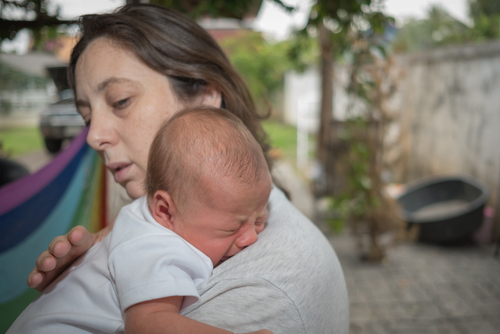Many women experience intrusive thoughts or images in the weeks after having their baby. Intrusive thoughts involve some type of harm happening to baby, which can be really scary and isolating. This is heightened when the thoughts or images involve harm coming from your own hands (such as yelling, shaking, or throwing your beautiful baby). Intrusive thoughts can also involve accidental harm, such as accidentally dropping your baby, a risk of SIDS, or leaving your baby in a hot car. It can be helpful to know the following:
-
- Intrusive thoughts are most prevalent in the first month after birth. They are so common that they are considered part of the normal postpartum experience in the research literature. You are not alone in this; it is just really difficult for mothers to talk about.
- In healthy postpartum women, these thoughts tend to reduce with time.
- In women with postnatal depression or obsessive-compulsive disorder, these thoughts tend to persist over time- so seek help! Start with seeing your trusted GP. A skilled psychologist, midwife, or other health professional will also be beneficial.
- Having intrusive thoughts does not mean that you will harm your baby, or something terrible will happen to them. The research has found no link between intrusive thoughts and violence towards babies.
- Intrusive thoughts often trigger high distress and protective behaviours, such as checking on your baby regularly, seeking help, or avoiding being alone with your baby. These are the mark of a mother who cares about their baby’s wellbeing, and also means that you are unlikely to harm your baby.
- Intrusive thoughts have been linked to sleep deprivation and stress. Recruit what practical help you can, including assistance to obtain any extra sleep, housework support, and tag-teaming with someone to settle an unsoothable baby.
- If intrusive thoughts are very severe, frequent, time-consuming, overly distressing, or result in rituals to neutralise the bad outcome happening: this is not part of the ‘normal’ postpartum experience. If this is the case, seek professional help.
If you need help with scary thoughts, here is a practical resource to see you through.

